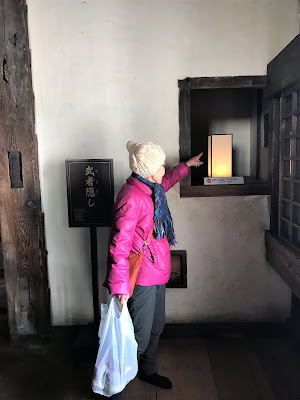
Himeji Castle
From Kyoto to Himeji (JR)
Travel Time: Around 55 mins
Kyoto Station - Himeji StationTake JR Tokaido/ Sanyo Shinkansen Special Rapid Trains (Shin-kaisoku) to Himeji.
Our route in Himeji:
Rent a Bicycle for Free → Himeji Castle → Kokoen Garden → City Museum of Art → Museum of Literature by Tadao Ando → Nagayoma Stupa
Rent a bicycle for Free (Tourist only)
First, go to the Himeji City Tourist Information Centre to rent a bicycle for free.
Himeji Castle
UNESCO World Heritage Site & National Heritage Building
🕕 Mon - Sun: 09.00 - 18.00 (Last entry 17.00)¥ 1040 yen for adults/ 1300 yen for Himeji Castle & Kokoen pass
Founded: 1333
The main attraction in Himeji is the outstanding Hakuto Castle because of its graceful appearance as if a bird spread its wings poised for flight. Another nickname of this castle is Shirasagi-jo (White Heron Castle as the white wall is made of white plaster. It is a National Heritage Building as Himeji Castle is the best preserved castle in Japan that was never destroyed by war, earthquakes or fire. 
The castle has been restored through different phase of Meiji Period, Showa Period, Heisei Period.






There are many small enclosed spots for mushakakushi as "warrior hiding places" where defenders hide themselves and kill attackers by surprise as they enter the keep.

Some of the ornaments on the wall are used to store weapons such as throwing knifes, shurikens, bows. On the right, there are weapon racks (bugukake) for holding matchlocks and spears.

Ornaments to store weapons

The 6th floor have iron bars in place where you can see a panaromic view of the beautiful city from the windows.

A special dry masonry techniques were used to create a solid wall of the castle. Large stones were piled up and small stones were used to filled in the gaps to lock rocks into position. There were no gaps between the rocks so attackers could not use them for footholds to climb the wall.


When I look back at the castle, I see so much more than a white beautiful castle.
Kokoen Garden
🕕 Mon - Sun: 09.00 - 17.00 (Last entry 16.30)¥ 300 yen for adults
Kokoen Garden was opened on April 29, 1992 situated next to Himeji Castle. There are nine different gardens here connected by flowing streams, waterfalls and ponds.

City Museum of Art
🕕 Tues - Sun: 10.00 - 17.00 (Last entry 16.30)The Himeji City Museum of Art as seen in a red brick building was opened in 1983. The museum is house to a collection of art works mainly by Japanese artist. There are three galleries (Permanent Exhibition Gallery, Special Exhibition Gallery & Collection Gallery) inside the museum. The museum also hosts lectures, gallery talks, workshops and other events to promote public understanding of the arts.
Museum of Literature by Tadao Ando
The museum is devoted to Tetsuro Watsuji, a Japanese moral philosopher, culutral historian and intellectual historian.There are three buildings here, two buildings designed by the renowned self taught architect, Tadao Ando. He was a boxer before settling on the profession of architect, and eventually won the 1995 Pritzker Architecture Prize. Tadao Ando's architectural style emphasizes on the beauty of simplicity. He is know of associating his design between nature and architecture with the creative use of natural light.


Panoramic view of Himeji city
Nagayoma Stupa
🕕 Mon - Sun: 08.40 - 16.30
¥ 200 yen for adults
¥ 200 yen for adults
Nagoyama Stupa is a modern park and cemetery with a main stupa and six stupas in the complex. The cemetery is just east of the stupa where all the gravestones lie in sculpted terraces to commemorate the soldiers.

The symbolic 38 meter main stupa was a gift from India's Prime Minister, Jawaharlal Nehru with a desire for eternal peace and happiness for humanity. He also contributed the ashes of Siddharta Gautama (Founder of Buddhism) enshrined inside the stupa, a Shakyamuni triad and standing images of Buddha's 10 great disciples.

MORIJU
🕓Mon - Sat: 11.30 - 14.00/ 17.00 - 20.30📍 1-2-6 Uomachi, Himeji
👣18 min walk from Himeji Castle


Comments
Post a Comment